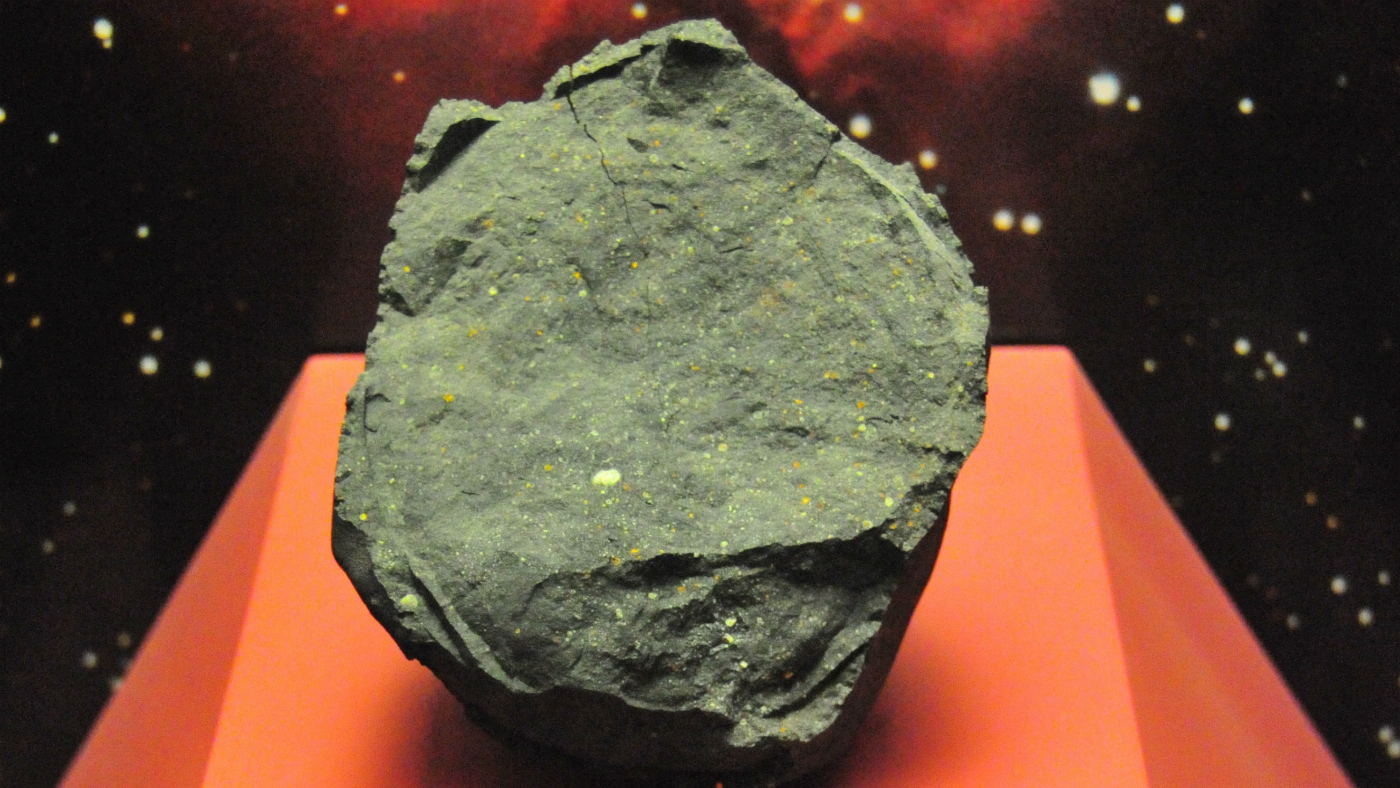What is the oldest material on Earth?
New research reveals that grains in meteorite that hit our planet 50 years ago predate the Solar System

A free daily email with the biggest news stories of the day – and the best features from TheWeek.com
You are now subscribed
Your newsletter sign-up was successful
The oldest material known to exist on Earth has been discovered in a rock that crashed into rural southeastern Australia in 1969, scientists have announced.
The researchers say the meteorite contains “pre-solar grains” that date back to up to seven million years before the birth of our solar system, Al Jazeera reports.
“They’re solid samples of stars, real stardust,” says Philipp Heck, the lead author of a paper on the study published in the journal Proceedings of the National Academy of Sciences.
The Week
Escape your echo chamber. Get the facts behind the news, plus analysis from multiple perspectives.

Sign up for The Week's Free Newsletters
From our morning news briefing to a weekly Good News Newsletter, get the best of The Week delivered directly to your inbox.
From our morning news briefing to a weekly Good News Newsletter, get the best of The Week delivered directly to your inbox.
So just what have scientists found?
Five decades ago, a lump of space rock dubbed the Murchison meteorite crashed near the town of the same name in the Australian state of Victoria. In the years since, different teams of researchers have probed the rock in a series of studies to identify its organic compounds and other properties.
About 30 years ago, scientists established that the meteorite contained pre-solar grains - described by science news site New Atlas as “tiny grains of silicon carbide older than the Sun”.
But the exact age of the material has only now been determined.
A free daily email with the biggest news stories of the day – and the best features from TheWeek.com
This week, scientists revealed that an analysis of 40 of the tiny dust grains show that most are between 4.6 and 4.9 billion years old, while the oldest date back about seven billion years - about 2.5 billion years before the Sun, the Earth and rest of our solar system formed.
–––––––––––––––––––––––––––––––For a round-up of the most important stories from around the world - and a concise, refreshing and balanced take on the week’s news agenda - try The Week magazine. Start your trial subscription today –––––––––––––––––––––––––––––––
How did they date the stardust?
“It starts with crushing fragments of the meteorite down into a powder,” explains Jennika Greer, a graduate student who works alongside study author Heck at the University of Chicago and the city’s Field Museum. “Once all the pieces are segregated, it’s a kind of paste, and it has a pungent characteristic - it smells like rotten peanut butter.”
This paste was then dissolved with acid until only the pre-solar grains remained. “It’s like burning down the haystack to find the needle,” says Heck.
Once the grains were isolated, the researchers calculated their age by measuring their exposure to cosmic rays - “high-energy particles that fly through our galaxy and penetrate solid matter”, he explains.
“Some of these cosmic rays interact with the matter and form new elements. And the longer they get exposed, the more those elements form,” Heck continues. “I compare this with putting out a bucket in a rainstorm. Assuming the rainfall is constant, the amount of water that accumulates in the bucket tells you how long it was exposed.”
The team “look forward to all of these discoveries furthering our knowledge of our galaxy”, reports Science Daily.
“With this study, we have directly determined the lifetimes of stardust,” says Heck. “We hope this will be picked up and studied so that people can use this as input for models of the whole galactic life cycle.”
-
 Political cartoons for February 12
Political cartoons for February 12Cartoons Thursday's political cartoons include a Pam Bondi performance, Ghislaine Maxwell on tour, and ICE detention facilities
-
 Arcadia: Tom Stoppard’s ‘masterpiece’ makes a ‘triumphant’ return
Arcadia: Tom Stoppard’s ‘masterpiece’ makes a ‘triumphant’ returnThe Week Recommends Carrie Cracknell’s revival at the Old Vic ‘grips like a thriller’
-
 My Father’s Shadow: a ‘magically nimble’ film
My Father’s Shadow: a ‘magically nimble’ filmThe Week Recommends Akinola Davies Jr’s touching and ‘tender’ tale of two brothers in 1990s Nigeria
-
 Epstein files topple law CEO, roil UK government
Epstein files topple law CEO, roil UK governmentSpeed Read Peter Mandelson, Britain’s former ambassador to the US, is caught up in the scandal
-
 Iran and US prepare to meet after skirmishes
Iran and US prepare to meet after skirmishesSpeed Read The incident comes amid heightened tensions in the Middle East
-
 Israel retrieves final hostage’s body from Gaza
Israel retrieves final hostage’s body from GazaSpeed Read The 24-year-old police officer was killed during the initial Hamas attack
-
 China’s Xi targets top general in growing purge
China’s Xi targets top general in growing purgeSpeed Read Zhang Youxia is being investigated over ‘grave violations’ of the law
-
 Panama and Canada are negotiating over a crucial copper mine
Panama and Canada are negotiating over a crucial copper mineIn the Spotlight Panama is set to make a final decision on the mine this summer
-
 Why Greenland’s natural resources are nearly impossible to mine
Why Greenland’s natural resources are nearly impossible to mineThe Explainer The country’s natural landscape makes the task extremely difficult
-
 Iran cuts internet as protests escalate
Iran cuts internet as protests escalateSpeed Reada Government buildings across the country have been set on fire
-
 US nabs ‘shadow’ tanker claimed by Russia
US nabs ‘shadow’ tanker claimed by RussiaSpeed Read The ship was one of two vessels seized by the US military